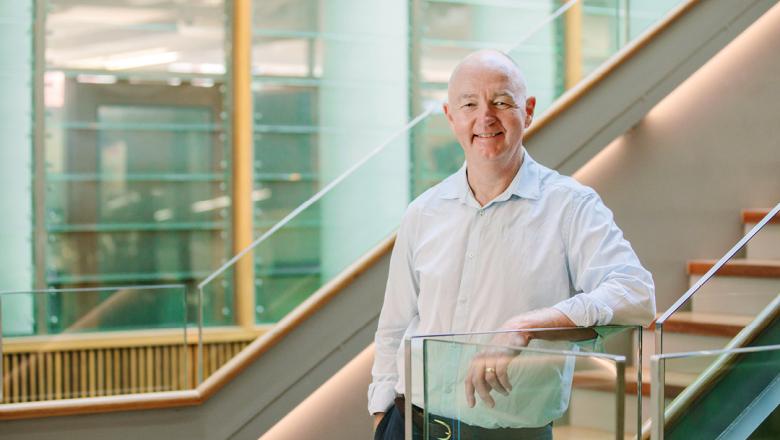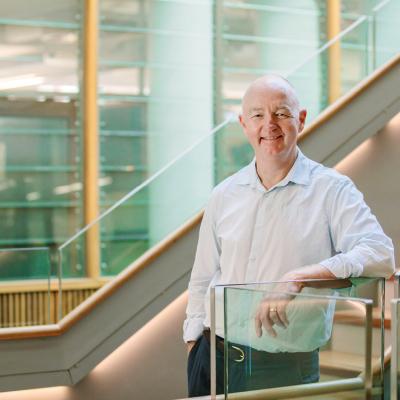COVID-19 has shown dramatically why public health is a critically important field for research and study. Emerging zoonotic diseases present a problem that isn't just going away.
Working with zoonotic diseases
UQ Public Health expert Associate Professor Simon Reid has no problems getting on his soapbox to praise the work of public health units during the COVID-19 crisis.
“These people are the unsung heroes of the pandemic,” he says.
“Public health units work closely with clinical services to make sure they know what’s coming and how to respond to it. They also guide government responses and public education activities. My colleagues have been working 10-hour days, 6 days a week for months with little increase in their staffing levels.”
Simon’s particular focus is zoonotic diseases
What is a zoonotic disease?
A zoonotic disease is one that jumps from animals to humans. Currently, 75% of emerging diseases are zoonotic diseases. But despite unprecedented global shutdowns, Simon says COVID-19 isn’t the most severe example.
“Middle Eastern Respiratory Syndrome (MERS) is around 80% fatal but not highly infectious. Bird Flu (H5N1) is also highly fatal but is hard to catch,” he says.
“The worst-case scenario would be something as infectious as measles with a fatality rate above 10%. The numbers become rather scary.
“We imagined this worst-case scenario during the bird flu epidemics in South-East Asia in 2007–2009 when it was feared that the highly fatal virus would transmit easily from human to human. It didn’t, thankfully, and all cases were associated with exposure to poultry."

Researching zoonotic diseases in Australia
Simon believes public health has often been invisible to the general public as it's not a patient-facing area of work. However, he hopes the COVID-19 response will attract more students and researchers to the field, as their work on zoonotic diseases will continue long after the current pandemic is resolved.
“Their job is to make sure we are safe, sort of like the cybersecurity and cyber surveillance infrastructure – the (not so) secret service for health!” says Simon.
He says a key focus for UQ’s School of Public Health is the relationship between our complex agricultural and food production systems and emerging zoonotic diseases, or 'One Health'.
“People enjoy certain types of food, but that food, such as the production and sale of live animals in parts of South-East Asia, carries a risk – but it’s a very strong cultural drive,” he says.
“There must be ways we can resolve the risks, so people can express their cultural preferences as well as protect themselves and their communities.”
Simon thinks courses through UQ’s School of Public Health have an emphasis on understanding context, problem solving and responding to industry demands. Both undergraduate and postgraduate students also have opportunities to complete workplace placements with both government and private sector stakeholders.
“It’s a very positive environment that’s focused on student employability,” he says.
Undergraduate student Bianca Abbott feels the UQ philosophy has equipped her with the confidence to face an uncertain tomorrow.
“Being adaptable in your work is going to be crucial to help tackle these emerging health problems,” she says.
“Understanding our lecturers’ research goals allows us to really think about what we’re learning and how it can be adapted into the future.”

Simon already has one PhD student exploring the impact of health literacy and risk perception on people’s compliance with COVID-19 regulations and public health directions in California, New South Wales, Queensland and New Zealand. He says research into public health areas beyond the immediate concerns of vaccines and treatments would be critical.
“The harder stuff to do is the behavioural research that helps improve the way governments design and implement the public health responses such as social distancing and movement restrictions,” he says.
“These require just as much evidence as any other part of health.”
Learn how you can play a vital part in a healthier future with a Bachelor of Health Sciences at UQ.






